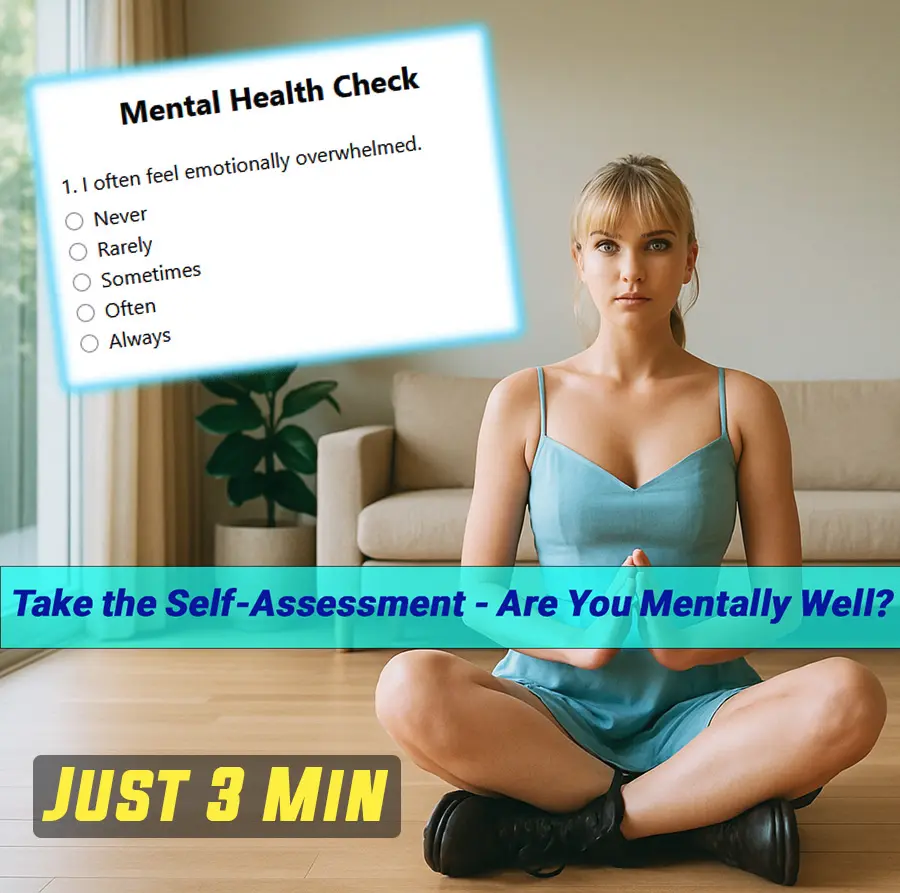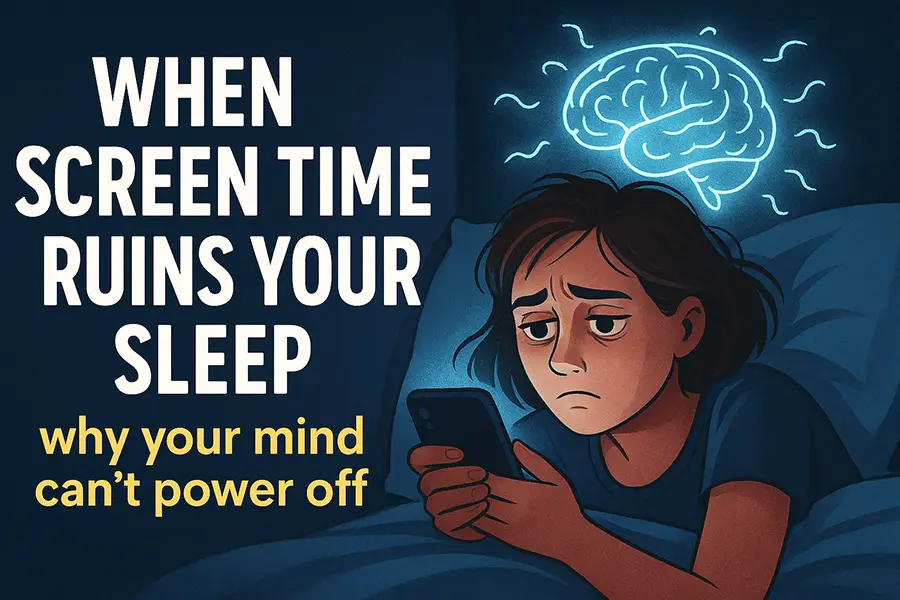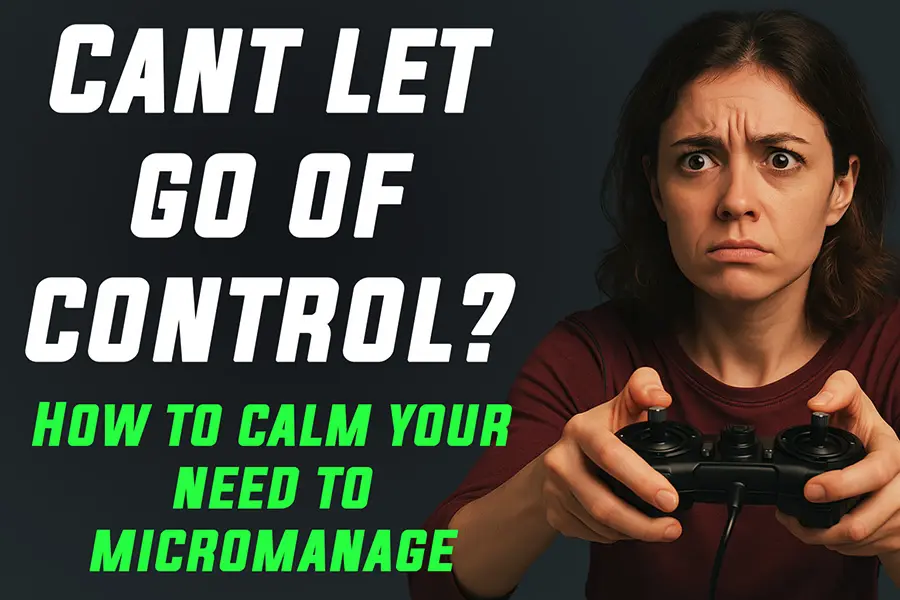Ever been lying in bed, staring at the ceiling, while your brain replays that awkward thing you said at lunch? Or maybe it’s a mistake from years ago that pops up outta nowhere, making you cringe all over again. Oh man, I totally get it 😅 I once spent an entire weeckend obsessing over a dumb comment I made at a friend’s party, wondering if everyone thought I was a total weirdo. It’s like my brain was stuck on repeat, playing the same scene over and over, and it was exhausting

This thing mental replay, or rumination is something we all do sometimes. Its when your mind keeps circling back to past conversations or mistakes, picking them apart like a detective looking for clues. But when it gets out of hand, it can mess with your head, making you feel anxious, ashamed, or just plain stuck. The good news?
You can break free from these loops. In this guide, we’ll dive into why your brain does this how it affects you, and practical ways to stop the replay and start living in the now. Ready to hit pause on that mental mixtape?
Quick Tips Section
Hours after a conversation, I’d still hear my words echoing in my mind: “Why did I say that?” “Did they think I was awkward?” “Should I have handled it differently?” Sometimes I’d replay mistakes from years ago, as if reliving them might change the outcome. That’s the exhausting loop of mental replay
Quick Tips to Stop Replaying Conversations
- Notice the Loop: Recognize when your mind starts replaying.
- Breathe Deeply: Take three slow breaths to reset.
- Redirect Thoughts: Focus on a present activity, like a walk.
- Write It Down: Journal to release the thought.
- Be Kind to Yourself: Let go with self-compassion.

Mental Wellness Test
Where Does Your Mind Need the Most Support?
Discover your emotional health in under 4 minutes.
Find out if what you’re feeling is:
burnout, anxiety,trauma
or just too many open tabs in your brain.
No pressure – Just clarity
What’s Mental Replay, Anyway? 🤔
Mental replay, or rumination, is when your brain keeps looping back to the same thoughts usually negative ones, like a convo gone wrong or a mistake you can’t let go of. It’s like your mind’s stuck on a broken record, playing the same tune over and over. According to the American Psychological Association (www.apa.org) rumination can make depression worse, mess with your ability to process emotions, and even push you to isolate yourself from others.
Think of it like this: your brain’s trying to solve a puzzle, but instead of finding answers, it just keeps spinning. Maybe you said something embarrassing at work, and now you’re replaying it, imagining all the ways you could’ve said it better. Or maybe it’s a fight with a friend that’s got you second guessing every word. Either way, it’s not just thinking its overthinking that keeps you stuck

Why The Brain Replays Past Moments
- Attempts to prevent future mistakes by analyzing past ones
- Perfectionism fuels self-critique to “fix” what already happened
- Shame triggers obsessive review to avoid similar pain
- Survival brain links past discomfort to current threat
Why Does Your Brain Keep Hitting Rewind? 🧠

So, why does your brain do this to you? Turns out, it’s not just being a jerk. There are some legit reasons why it gets stuck in replay mode:
- Learning from the Past: Your brain’s trying to figure out what went wrong so you don’t mess up again. It’s like a coach reviewing game footage, but sometimes it gets way too intense.
- Perfectionism: If you’re a perfectionist (guilty!), any little mistake can feel like a catastrophe. Your brain replays it to “fix” what’s already done, even though, spoiler alert: you can’t change the past.
- Shame and Guilt: These emotions are like fuel for rumination. They make you dwell on moments that hurt, hoping to avoid that pain again. I once replayed a flubbed presentation for weeks, feeling like I’d let everyone down.
- Stress or Trauma: If you’ve got unresolved stress or past trauma, your brain might replay events to process them. It’s like it’s trying to make sense of something that still feels raw.
- Neural Habits: The more you think about something, the stronger those neural pathways get. It’s like wearing a groove in a record the more you play it, the easier it is to keep playing.
As Taylor Newendorp, a clinical training director at NOCD (treatmyocd.com) puts it, “Replaying past conversations is super common. We’re social creatures, and we care a lot about how we come across.” It’s your brain’s way of prepping for round two, but sometimes it just gets stuck in rehearsal mode.
Why Mental Replay Feels So Hard to Stop
- The brain believes reviewing might prevent future regret.
- Unfinished emotional processing keeps old moments alive.
- Self-blame masquerades as “productive reflection.”
- Neural pathways strengthen with repetition of the replay cycle.
Signs You May Be Stuck in Mental Replay
- Replaying the same conversations repeatedly
- Rehearsing imaginary “better versions” of past events
- Feeling shame or anxiety long after harmless moments
- Struggling to focus on the present
- Difficulty letting go of perceived mistakes

How Mental Replay Messes with Your Vibe
Okay, so replaying stuff in your head isn’t just annoying it can really take a toll. Here’s how it might be affecting you:
 More Anxiety and Depression: Constantly dwelling on past mistakes can ramp up anxiety and even lead to depressive feelings. It’s like your brain’s piling on extra stress for no reason.
More Anxiety and Depression: Constantly dwelling on past mistakes can ramp up anxiety and even lead to depressive feelings. It’s like your brain’s piling on extra stress for no reason. Trouble Focusing: When your mind’s stuck in the past, it’s hard to stay present. Ever tried to work while your brain’s replaying a fight with your partner? Yeah, not fun.
Trouble Focusing: When your mind’s stuck in the past, it’s hard to stay present. Ever tried to work while your brain’s replaying a fight with your partner? Yeah, not fun. Lower Self-Esteem: Beating yourself up over past mistakes can make you feel like you’re not good enough. I used to think I was the only one who said dumb stuff spoiler: we all do!
Lower Self-Esteem: Beating yourself up over past mistakes can make you feel like you’re not good enough. I used to think I was the only one who said dumb stuff spoiler: we all do! Strained Relationships: If youre too busy replaying old convosyou might miss out on connecting with people right in front of you.
Strained Relationships: If youre too busy replaying old convosyou might miss out on connecting with people right in front of you.
The kicker? These loops don’t actually solve anything. They just keep you trapped, like a hamster on a wheel. But dont worry there are ways to hop off that wheel and get backt o living
Signs You’re Caught in a Mental Replay Loop
Not sure if you’re stuck in this cycle? Here are some signs to watch for:
- You keep replaying the same conversation or moment over and over, like it’s on a loop.
- You imagine “better” versions of what you could’ve said or done, even though it’s long over.
- You feel shame, anxiety, or regret about stuff that seems minor to others.
- You struggle to focus on the present because your mind’s stuck in the past.
- Your body feels tense or stressed when these thoughts pop up (like a tight jaw or racing heart)
If any of these sound familiar, you’re not alone. I’ve been there, replaying a clumsy joke I told at a coffee shop like it was the crime of the century. 😬 The good news? You can break free.

How to Gently Interrupt Mental Replay Loops
1️⃣ Normalize the Brain’s Attempt to Self-Protect
“My mind replays to feel prepared, but it’s keeping me trapped.” Your brain’s just trying to keep you safe, like an overzealous bodyguard. Acknowledge it: “Hey, brain, I get that you’re trying to help, but this isn’t helping me right now.” This simple shift can take the power out of those thoughts.
2️⃣ Ground Into Present-Moment Anchors
- 5 senses check-in: What do I see, hear, feel now?
- Breathing exercises to redirect attention
When your mind’s stuck in the past, bring it back to the present with your senses. Try the 5-4-3-2-1 technique: name 5 things you see, 4 you can touch, 3 you can hear, 2 you can smell, and 1 you can taste. It’s like hitting the reset button on your brain.

Or, try some deep breathing: inhale for 4, hold for 4, exhale for 4. I do this when I’m spiraling about a work email I sent, and it’s like a mini-vacation for my mind.
3️⃣ Talk Back to Your Thoughts
When you catch yourself replaying, interrupt with a firm but kind phrase: “That moment’s done. I’m here now.” or “I did my best, and that’s enough.” It sounds cheesy, but it works. I started saying this when I was obsessing over a bad date, and it helped me let go.
4️⃣ Journal the Unfinished Stuff
Writing can be a game-changer for processing those stuck feelings. Grab a notebook and ask yourself:
- What part of this moment still feels raw?
- What would I say to a friend who made this mistake?
- How can I forgive myself for this?
- What can I learn without beating myself up?
I once wrote about a time I snapped at a coworker and realized I was just stressed, not a terrible person. It was like lifting a weight off my chest. Check out our guide on Journaling for Mental Health for more prompts.
- Write: “What part of that experience still feels unprocessed?”
- Validate younger self: “You did your best then.”
5️⃣ Build a More Flexible Nervous System
Your nervous system can get stuck in “fight-or-flight” mode, making replays worse. To loosen it up:
- Progressive Muscle Relaxation: Tense and release each muscle group, starting from your toes to your head. It’s like a massage for your nerves.
- Mindful Acceptance: Let thoughts come and go without fighting them. Think of them as clouds passing by.
- Small Challenges: Practice sitting with minor discomforts (like not checking your phone right away) to build resilience.
For more on this, see our article on Emotional Resilience

6. Be Your Own Best Friend
Self-compassion is key. Treat yourself like you’d treat a friend who messed up. As Kristin Neff says, “Self-compassion involves treating yourself with the same kindness you’d show to a good friend.” Try this: put your hand on your heart and say, “It’s okay. I’m human. I did my best.” Its helped me forgive myself for plenty of awkward moments
When to Get Extra Help 🩺
Sometimes, mental replay can be a sign of something bigger, like anxiety or OCD. If it’s taking over your life keeping you up at night, messing with work, or making you feel stuck it might be time to talk to a pro. Cognitive Behavioral Therapy (CBT) is super effective for rumination, helping you rewire those thought patterns. I saw a therapist when my replays got out of hand, and it was like getting a roadmap out of my own head

You Don’t Need to Re-Live Every Moment
The past is complete even if imperfect. Your nervous system can learn that peace doesn’t require re-analyzing every word or choice. You’re allowed to release old loops and fully live where your feet are: in the present…

Let the Past Go and Live Now
Your brain might love replaying old conversations and mistakes, but you don’t have to stay stuck in that loop. The past is done, and you’re allowed to let it go even if its messy or imperrfect. With tools like mindfulness, journaling, and self-compassion, you can train your mind to focus on the present and find peace.
As Jon Kabat-Zinn says, “You can’t stop the waves, but you can learn to surf.” So, take a deep breath, give one of these strategies a try, and start living where you are right now. You’ve got this.
What’s one thing you’re gonna try to break your mental replay loops? Drop it in the comments we’d love to cheer you on! 😊 For more mental wellness tips, check out our Self-Care Hub
Q&A: Your Burning Questions Answered 🤔
Got questions about mental replay? I’ve been there, so let’s tackle some common ones:
Processing helps you find closure, like solving a puzzle. Overthinking just keeps you spinning without answers. If your thoughts feel repetitive and stressful, it’s probably overthinking. Try journaling to see if you’re moving forward or just stuck.
Nighttime’s quiet, so your brain has fewer distractions to keep it busy. Try a bedtime routine with calming stuff like reading or a quick meditation. I keep a notepad by my bed to jot down thoughts so I can let them go till morning.
Not always. Replays can come from perfectionism or anxiety, not just trauma. But if they’re intense or tied to painful memories, a therapist can help you figure out if there’s something deeper going on.
Totally! Mindfulness trains you to notice thoughts without getting sucked in. It’s like learning to surf the waves of your mind instead of drowning in them. Check out Mindfulness for Beginners for easy ways to start.
It’s okay change takes time. If replays are still running the show, a therapist can offer tools like CBT to help you break free. You’re not broken; you just need a little extra support.
Break the Cycle Today!
Try one tip like deep breathing and share how it feels in the comments. Want more? Check out our Rumination Guide.
Related Articles I Recommend Don’t Miss:
Ultimate Mental Wellness Test: Discover Emotional Health Just in 3 Min
Ever wonder where you stand with your mental health? That’s where our quick question Mini Mental Health Check comes in. It’s like a quick peek into your brain, giving you insights into your anxiety, burnout, and self-esteem levels.

✨ Last updated on 08.08.2025












 Trouble Focusing: When your mind’s stuck in the past, it’s hard to stay present. Ever tried to work while your brain’s replaying a fight with your partner? Yeah, not fun.
Trouble Focusing: When your mind’s stuck in the past, it’s hard to stay present. Ever tried to work while your brain’s replaying a fight with your partner? Yeah, not fun. Lower Self-Esteem: Beating yourself up over past mistakes can make you feel like you’re not good enough. I used to think I was the only one who said dumb stuff spoiler: we all do!
Lower Self-Esteem: Beating yourself up over past mistakes can make you feel like you’re not good enough. I used to think I was the only one who said dumb stuff spoiler: we all do! Strained Relationships: If youre too busy replaying old convosyou might miss out on connecting with people right in front of you.
Strained Relationships: If youre too busy replaying old convosyou might miss out on connecting with people right in front of you.









Leave a Reply